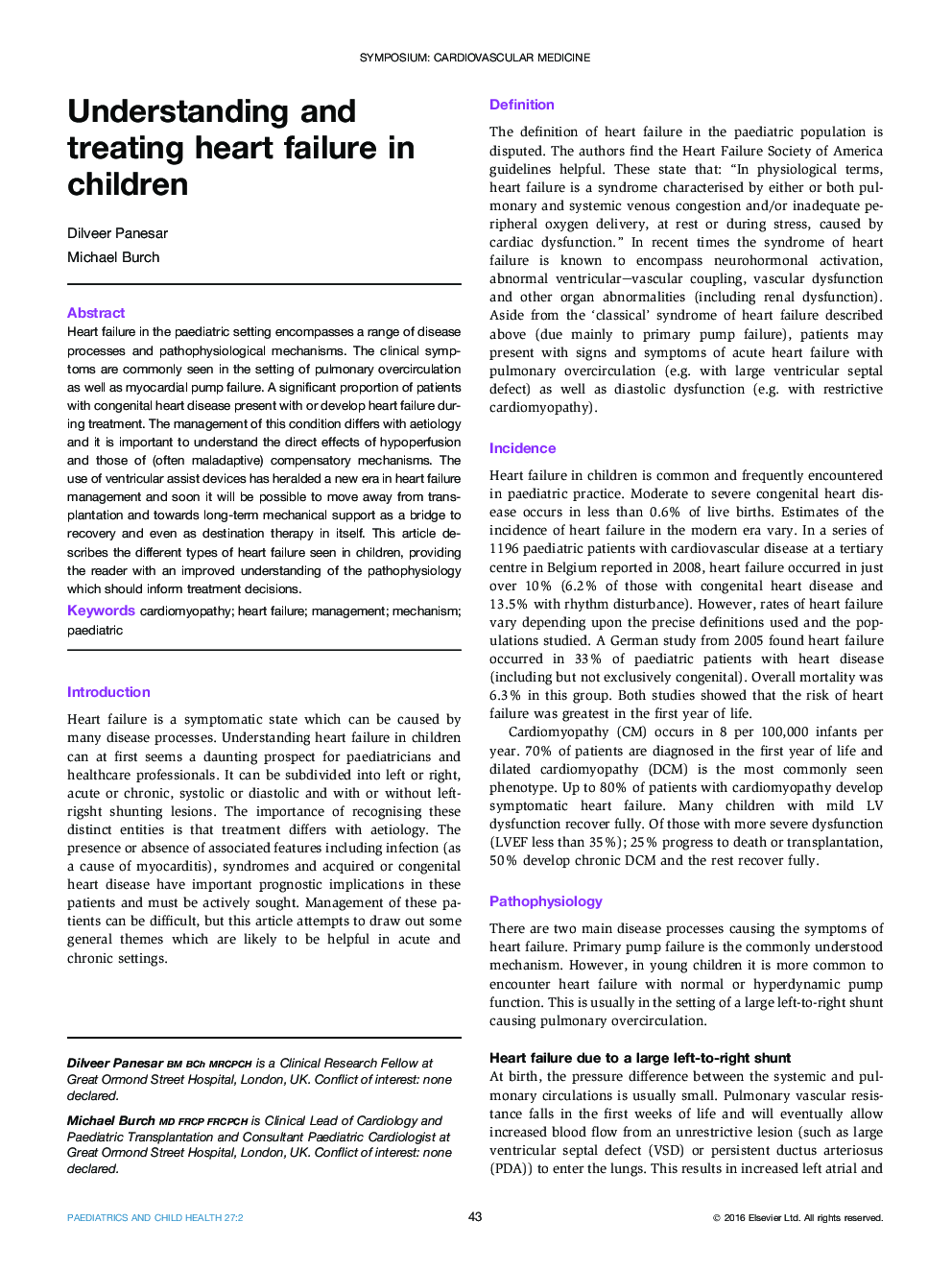| Article ID | Journal | Published Year | Pages | File Type |
|---|---|---|---|---|
| 5720015 | Paediatrics and Child Health | 2017 | 7 Pages |
Heart failure in the paediatric setting encompasses a range of disease processes and pathophysiological mechanisms. The clinical symptoms are commonly seen in the setting of pulmonary overcirculation as well as myocardial pump failure. A significant proportion of patients with congenital heart disease present with or develop heart failure during treatment. The management of this condition differs with aetiology and it is important to understand the direct effects of hypoperfusion and those of (often maladaptive) compensatory mechanisms. The use of ventricular assist devices has heralded a new era in heart failure management and soon it will be possible to move away from transplantation and towards long-term mechanical support as a bridge to recovery and even as destination therapy in itself. This article describes the different types of heart failure seen in children, providing the reader with an improved understanding of the pathophysiology which should inform treatment decisions.
